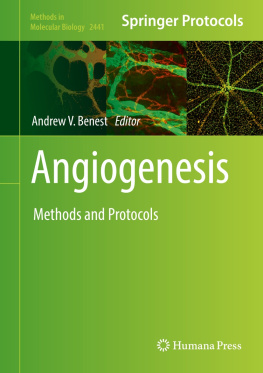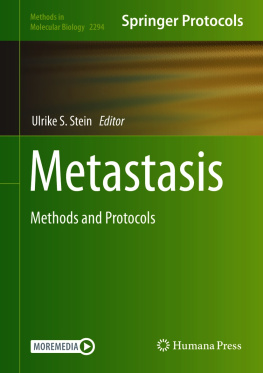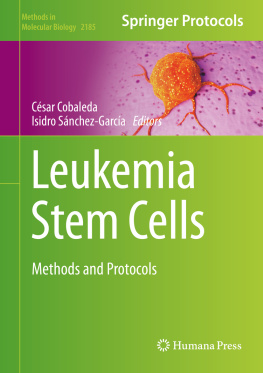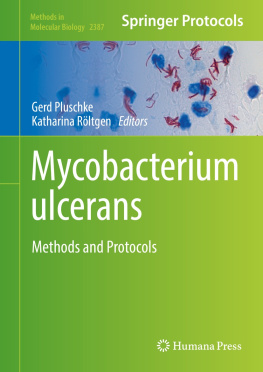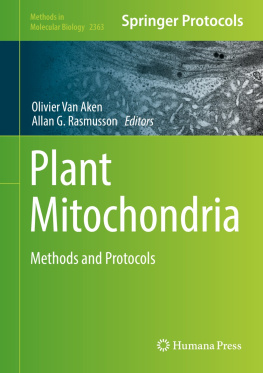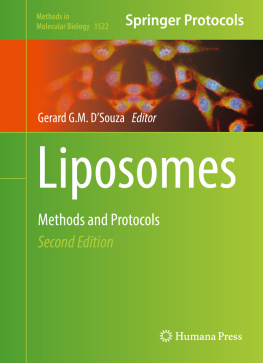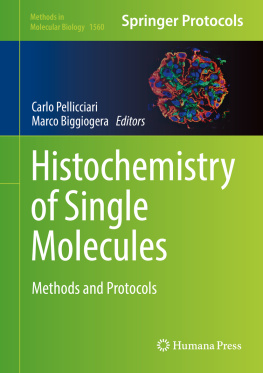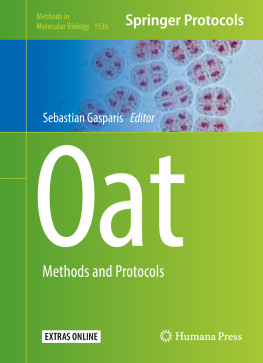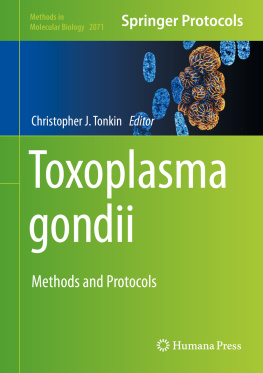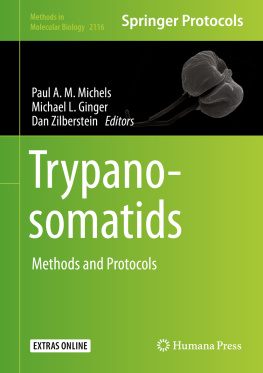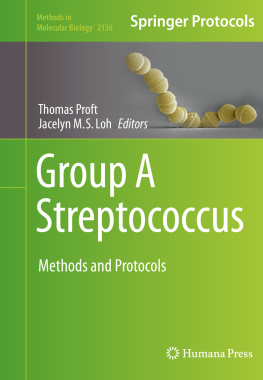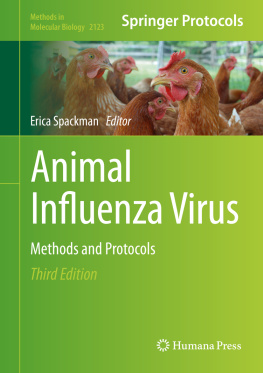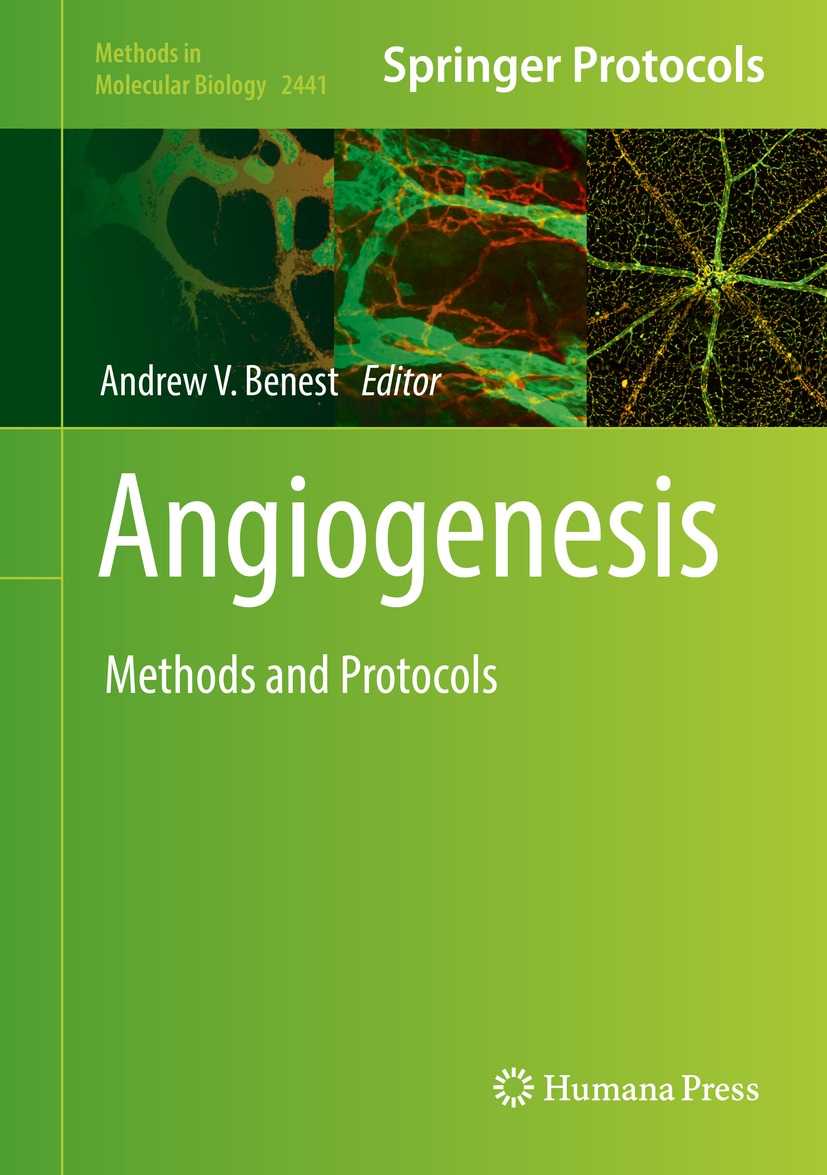Volume 2441
Methods in Molecular Biology
Series Editor
John M. Walker
School of Life and Medical Sciences, University of Hertfordshire, Hatfield, Hertfordshire, UK
For further volumes: http://www.springer.com/series/7651
For over 35 years, biological scientists have come to rely on the research protocols and methodologies in the critically acclaimed Methods in Molecular Biology series. The series was the first to introduce the step-by-step protocols approach that has become the standard in all biomedical protocol publishing. Each protocol is provided in readily-reproducible step-by-step fashion, opening with an introductory overview, a list of the materials and reagents needed to complete the experiment, and followed by a detailed procedure that is supported with a helpful notes section offering tips and tricks of the trade as well as troubleshooting advice. These hallmark features were introduced by series editor Dr. John Walker and constitute the key ingredient in each and every volume of the Methods in Molecular Biology series. Tested and trusted, comprehensive and reliable, all protocols from the series are indexed in PubMed.
Angiogenesis
Methods and Protocols

Logo of the publisher
Editor
Andrew V. Benest
Biodiscovery Institute, University of Nottingham, Nottingham, UK
ISSN 1064-3745 e-ISSN 1940-6029
Methods in Molecular Biology
ISBN 978-1-0716-2058-8 e-ISBN 978-1-0716-2059-5
https://doi.org/10.1007/978-1-0716-2059-5
The Editor(s) (if applicable) and The Author(s), under exclusive license to Springer Science+Business Media, LLC, part of Springer Nature 2022
This work is subject to copyright. All rights are solely and exclusively licensed by the Publisher, whether the whole or part of the material is concerned, specifically the rights of translation, reprinting, reuse of illustrations, recitation, broadcasting, reproduction on microfilms or in any other physical way, and transmission or information storage and retrieval, electronic adaptation, computer software, or by similar or dissimilar methodology now known or hereafter developed.
The use of general descriptive names, registered names, trademarks, service marks, etc. in this publication does not imply, even in the absence of a specific statement, that such names are exempt from the relevant protective laws and regulations and therefore free for general use.
The publisher, the authors and the editors are safe to assume that the advice and information in this book are believed to be true and accurate at the date of publication. Neither the publisher nor the authors or the editors give a warranty, expressed or implied, with respect to the material contained herein or for any errors or omissions that may have been made. The publisher remains neutral with regard to jurisdictional claims in published maps and institutional affiliations.
This Humana imprint is published by the registered company Springer Science+Business Media, LLC part of Springer Nature.
The registered company address is: 1 New York Plaza, New York, NY 10004, U.S.A.
Preface
This is a new edition of this book, and I am honored to have been passed the editing baton by my friends, colleagues, and collaborators, Stewart Martin and Peter Hewett, editors of three earlier editions. I am delighted that the field of angiogenesis continues to develop at pace, and this is reflected in this latest collection.
The nature of angiogenesis research is changing. Whereas previous editions were written at a time where there was a focus on exploring how endothelial cells responded to angiogenic stimuli, the field has now grown to incorporate new ideas. We now know that the dynamic endothelium comprises multiple different phenotypes and behaviors, across developmental, pathological, and physiological settings. This edition builds on the lymphatic protocols included in previous Methods in Molecular Biology volumes, and I am delighted to have been able to continue this trajectory.
Not only has our understanding of angiogenesis shifted, but scientists also now have access to huge amounts of data and resources online. While this explosion of freely available data is a huge positive to the field, analysis can seem daunting, so this book includes tools to aid in the interpretation of large datasets. For example, we have included protocols to explore how transcriptional phenotyping can be achieved, in terms of exploring tissue-specific heterogeneity to the use of database mining of existing datasets. Similarly, bioinformatic techniques run alongside protocols for transcript analysis, cell biology, pathology, physiological and developmental angiogenesis models.
As with the previous editions, the focus of this work is to enable anyone in a routinely equipped laboratory to pick up this book and perform the experiments as described. However, it should be noted that experiments relying on animal work (and we have included mammalian and fish models) are reliant on the appropriate measures (legal, ethical, and procedural) being in place.
This book was commissioned, written, edited, and produced entirely against the challenging backdrop of COVID-19, and I will be forever indebted to the contributors who have given their time, expertise, and kindness to the collaborative process. I am delighted to have put together a book of 29 chapters with such esteemed authors, who bring a diverse range of skills and experience to their respective chapters to build a rich learning resource. I would also like to thank my own research team for their support during this time too. Above all, I hope this edition provides a meaningful contribution to angiogenesis and endothelial cell biology research.
Andrew V. Benest
Nottingham, UK
Contents
Part I Developmental Biology
Gabriela DAmico and Christiana Ruhrberg
Yan Chen , Paul C. Evans and Robert N. Wilkinson
Lachlan Whitehead , Emma C. Watson and Zoe L. Grant
Elena Ioannou and Christiana Ruhrberg
Alessandro Fantin
Part II Adult Physiology and Pathology
Nikita Ved and Jacinta Isabelle Kalisch-Smith
Louise A. Johnson
Zubair Ahmed Nizamundeen , Loubna ElSaboni , Grace Vetch , Jumana Karim , Chris R. Neal , Claire L. Allen , David O. Bates and Kenton P. Arkill
Sohni Ria Bhalla , Federica Riu , Maria J. C. Machado and David O. Bates
Peter Baluk and Donald M. McDonald
Naseeb K. Malhi , David O. Bates , Kenton P. Arkill and Claire L. Allen
Dima Majbour , Ariana D. Suarez-Martinez , Nicholas A. Hodges , Arinola O. Lampejo , Banks M. Lomel , Elijah W. Rice , Hulan Shang , Adam J. Katz and Walter L. Murfee
Konstantinos Klaourakis , Paul R. Riley and Joaquim Miguel Vieira
Stewart G. Martin , Emad Rakha and Sarah J. Storr
Marlene E. Da Vitoria Lobo , Lydia Hardowar and Richard P. Hulse
Martina Rudnicki , Alexandra Pislaru and Tara L. Haas
Kathryn R. Green , Nicholas Beazley-Long , Amy P. Lynch , Claire L. Allen , David O. Bates and Andrew V. Benest

